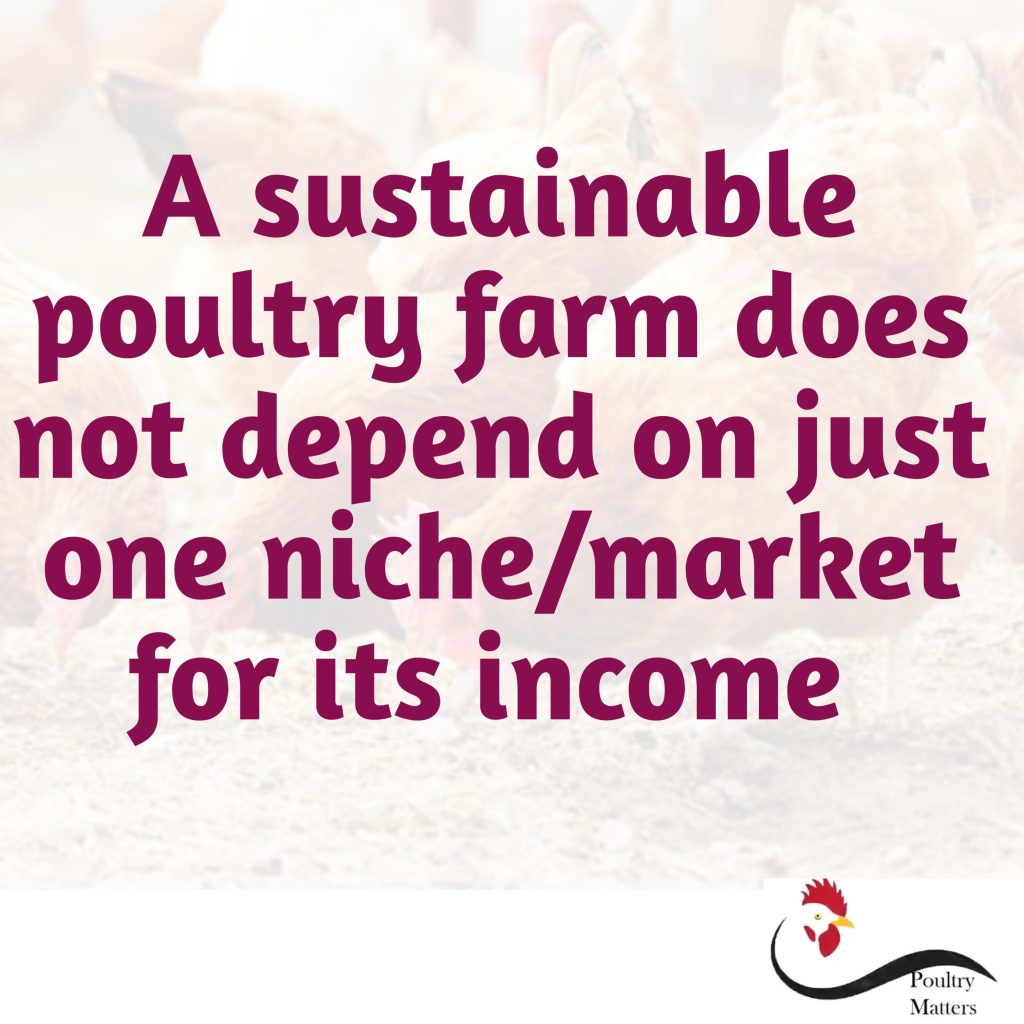Promoting Sustainability in Poultry Farming
Sustainability has become a global priority as the world shifts towards environmentally friendly practices across all sectors — including agriculture. For poultry farmers, embracing sustainable farming practices is not only a responsible approach but a smart business strategy. Adopting the sustainable farming practies helps in ensuring long-term profitability, protects the environment, and meets the evolving demands of conscious consumers. Sustainability in poultry farming involves adopting methods that improve farm productivity while minimizing negative impacts on natural resources, animal welfare, and surrounding communities.
Key focus areas to enhance sustainability in Poultry Farming business
- Waste Management – Poultry farms produce a significant amount of waste, including manure, litter, feathers, and wastewater. If not properly handled, these wastes can contaminate water bodies, pollute the soil, and create unpleasant odors. Sustainable waste management — such as composting manure, using waste to generate biogas, or converting waste to organic fertilizer — reduces environmental pollution, prevents disease outbreaks, and promotes resource efficiency.
- Energy Efficiency and Renewable Sources – Conventional energy sources like diesel and electricity contribute to high operational costs and greenhouse gas emissions. Transitioning to renewable energy — such as solar panels, wind turbines, or biogas systems — reduces dependency on fossil fuels, lowers utility bills, and decreases the farm’s carbon footprint.
- Organic and Free-Range Production – Consumer preferences are shifting toward healthier, more ethically raised poultry. Producing organic and free-range birds (raised without synthetic additives and with access to natural environments) not only meets this demand but also supports animal welfare and environmental balance. This can lead to premium pricing and a loyal customer base.
- Water Conservation – Poultry farms require large volumes of water for drinking, cleaning, and processing. Poor water management leads to high costs and wastage. Implementing systems for water recycling, rainwater harvesting, and efficient delivery systems (like nipple drinkers) ensures optimal use and minimizes waste.
- Sustainable Business Practices – Sustainability extends beyond the environment — it includes building a resilient business model. This involves diversifying income streams (e.g., selling manure, processed meat, or training services), planning for long-term growth, practicing ethical marketing, and preparing for market fluctuations. These strategies strengthen the farm’s foundation and ability to thrive even during economic challenges.
Benefits of Adopting Sustainable Practices in Poultry Farming
- Cost Reduction – Practices like recycling waste, using solar energy, and reducing feed or water loss help to significantly cut operational costs, leading to higher profit margins.
- Environmental Protection – Responsible waste disposal, reduced emissions, and minimal land or water contamination protect the surrounding ecosystem and contribute to the global fight against climate change.
- Optimal Resource Utilization – Efficient use of water, energy, and feed helps avoid overuse and wastage, ensuring long-term access to essential inputs and reducing pressure on natural resources.
- Improved Business Stability and Scalability – Sustainable practices reduce operational risks, boost resilience to market or climate shocks, and allow for structured expansion based on steady growth.
- Enhanced Public Image and Brand Trust – Environmentally conscious consumers are more likely to support brands that practice sustainability. This builds customer loyalty, improves market positioning, and enhances the farm’s reputation and value.
Conclusion –
Sustainability in poultry farming is no longer optional — it is essential. By integrating environmentally friendly, economically viable, and socially responsible practices, poultry farmers can ensure long-term success and contribute to a healthier planet. The future of poultry farming depends on today’s decisions. Let your farm be part of the solution — not the problem.
Have questions or want to share how you’re making your farm more sustainable? Let us know in the comments or send a message.
Cheers to greener poultry farming.sumers in the farm’s products – it attracts more eco-conscious customers

Do you need help on your farm? Reach out to us -We are your colleague, partner and friend in the poultry farming business. It will be our pleasure to lend the helping hand you need.
Read more on key resolutions to improve your farm
https://poultrygist.com.ng/2024/12/resolutions-for-healthier-poultry/
Cheers.

